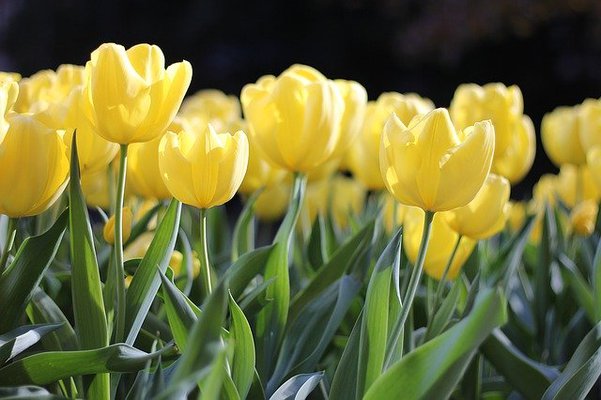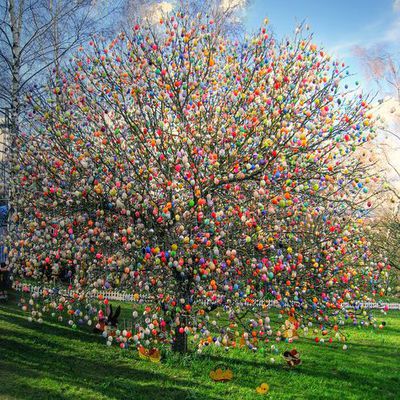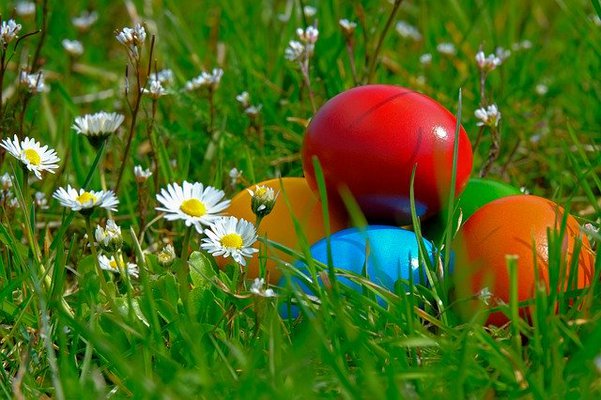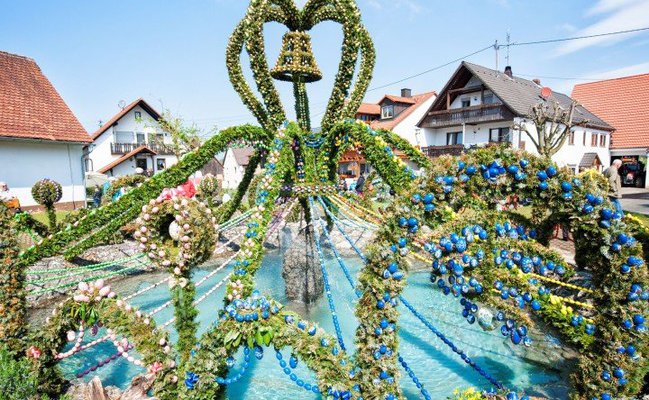Easter is one of the most popular holidays in Germany. After a long, cold German winter, the festivities of Carnical, Lent, and Easter celebrations welcome the eagerly anticipated spring season.

During this time of year, there is a resurgence of Germany's longstanding Easter traditions. Some of them you might now from your own countries. However, Germany also has some Easter traditions that are less widely practiced and unique to Germany. If you do plan on visiting Germany at this time of year, don't forget to wish everyone a "Frohe Ostern!" or "Happy Easter!"
Easter Trees
Like Christmas trees, Osterbaum, or Easter trees, are kept in the home during the holiday season and some people may even decorate the trees in their yards or public parks. Unlike the bushy evergreen trees that are iconic of Christmas, Easter trees tend to have bare branches and are decorated with colorfully decorated eggs instead of ornaments.
One of the most famous Easter trees in all of Germany is located at one family's home in the eastern state of Thuringia. For more than 50 years, the Kraft family in the town of Saalfeld has made a tradition of hanging thousands of hand-decorated eggs on their tree, a sight that attracts visitors from all over Germany every Easter.
http://www.eierbaum-saalfeld.de

Easter Eggs
Easter eggs symbolize new life and in Germany, eggs are often still hand-blown and delicately decorated. Eggs were once traditionally dyed with natural materials like tea, roots, and spices. That said, you can also buy egg-dying kits or bright, pre-dyed eggs in the store.

Easter Fountains
Osterbrunnen, Easter fountains, are another festive way Germans like to celebrate the holiday. During the season, public fountains are typically draped in arches made of Evergreens, flowers, and colorful Easter eggs. You'll find them particularly in the Catholic-observing regions of southern Germany. For example, the fountains in the Bavarian village of Bieberbach are some of the most grandly decorated in the whole country and draw thousands of visitors to see them around Easter.

https://www.wir-entdecken-bayern.de/ausflugsziele/osterbrunnen-franken
Easter Weekend
Germans are lucky to enjoy a very long Easter weekend. From Good Friday to Easter Monday, everything is closed including shops, banks, and offices. The only exception is on Saturday when everything opens normally, although beware that grocery stores, in particular, will be busy with people restocking.
School vacation also coincides with the Easter season and are usually in the two weeks around Easter weekend, so you many families plan travels around this time. Here are some of the traditions by day you can expect to see if you plan to spend the weekend of Easter Sunday in Germany:
- Good Friday: The Easter weekend in Germany begins with a quiet Good Friday (Karfreitag). Many families eat fish as their traditional Good Friday lunch before enjoying a weekend together.
- Easter Saturday: This is a great day to visit an open-air Easter market where you can shop for artistically handcrafted Easter eggs, carved Easter decorations, and local arts and crafts. Stop by a German bakery for a special Easter treat like a sweet cake in the shape of a lamb. Also on Saturday evening, regions in the north of Germany will light Easter bonfires, chasing away the dark spirits of winter and welcoming the warmer seasons.
- Easter Sunday: Easter Sunday is the highlight of the holiday weekend. In the early morning, parents hide baskets filled with colored, hard-boiled eggs, chocolate bunnies, sweets, and little presents for the kids. Many families attend an Easter service, followed by a traditional Easter lunch, lamb, potatoes, and fresh vegetables.
- Easter Monday: This is another quiet family day, but it's also a national holiday so offices and stores are closed.
How to celebrate Easter like a local: